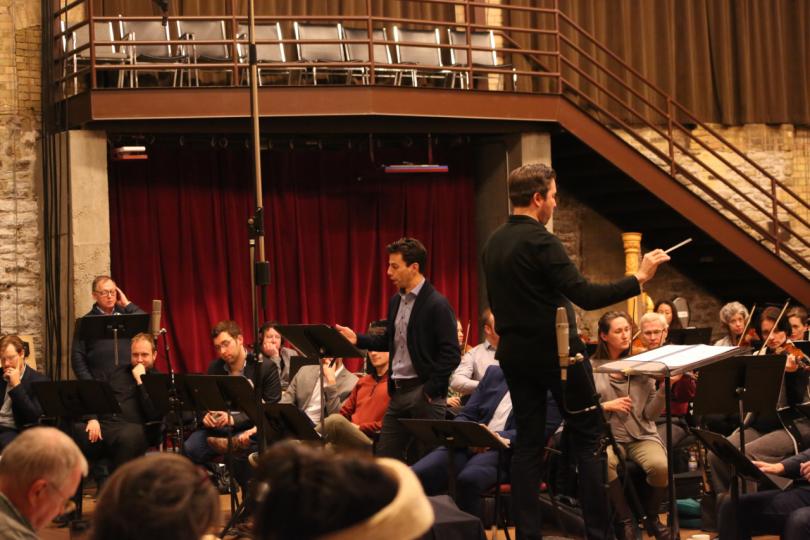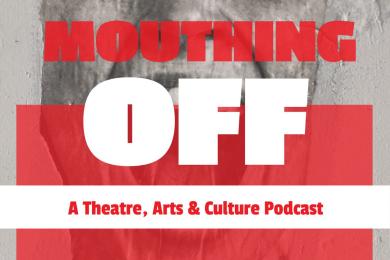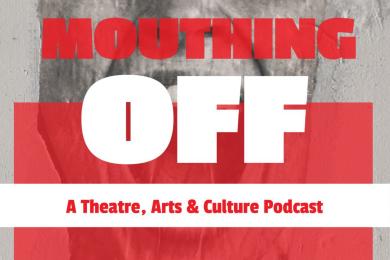How It's Made | Opera

Do you remember the 1984 film Amadeus? Particularly the scene in which the genius protagonist is bedridden and needs his imbecile rival to notate his final composition? I sure as heck do. I watched that movie as a young musician and assumed I was witnessing how art was made. It appeared to be a 2 step process:
Step 1: An eccentric genius receives divine inspiration
Step 2: A group of average artists bring that inspired inspiration to production
When I got to college and took music history classes I learned that my system was inherently flawed. College taught me that, in fact, major musical compositions are made by a 4 step process:
Step 1: Be born wealthy in a major European city to moderately successful artistic parents
Step 2: Do everything your eccentric composition teacher tells you, including writing operas to be produced by other people
Step 3: Profit
Step 4: Die of syphilis
Perhaps my steps aren’t perfectly accurate but it’s true that we associate one single name with an opera. We attach the composer to the piece and forget about the rest of the village that worked on its creation. Works of musical theater usually offer the names of both the composer and lyricist but the same point holds true: the creation of a new work is a major production that involves a huge number of artists. I think this is beautiful and fascinating and far more profound than the notion of a solitary genius. Understanding art-as-teamwork makes me appreciate it more and MN Opera recently gave me a backstage pass to understand their process and share it with you.
If you go to The Ordway on Friday, March 16 you can spend your evening watching the world premiere of “The Fix”. At 7:30 it will be the world’s newest opera and you can spend one day of your life experiencing it. It will be the culmination of your evening in St. Paul. For the performers, it will be the culmination of months of learning and memorizing. For the composer and librettist it will be the culmination of 3 years of work. For Dale Johnson, an opening night can be 10 years in the making.
Who’s Dale Johnson? I’m glad you asked! As MN Opera’s creative advisor he’s… how shall I say… the wizard of Oz (if you’ll indulge my metaphor I’ll explain). Like the Wiz, Dale is great and powerful: In his position he single handedly picks the subject matter of each new opera commissioned by the company. He also personally selects the composer and librettist who will bring it to life. He resides behind a great machine (opera company) that seemingly makes magic. He knows how to pull all the right ropes and levers to keep the machine working optimally. Like the wizard, he has no superpowers but is actually a kind and gentle man if you find yourself behind the curtain. Also like the wizard, his greatest skill is bringing out the talents that are already inside each member of his team. Unlike the wizard, he maintains no grandiose façade but freely agrees to interviews with humble reporters such as myself.
Back in November, I sat down with Dale and felt quite smug at the list of clever questions I brought with me. After asking one or two of them I realized Dale didn’t need any prompting. He was quite free with details of the compositional process and upcoming works (he swore me to secrecy about the titles of new operas on his ‘someday’ list). Facts I learned include:
-
A potential opera can be stuck in limbo for a decade while the legal rights are cleared with the author, author’s family, or copyright holder
-
Dale would love to create new operas in the genres of; thriller, war, gangster, cowboy, baseball (done!), and sci-fi
-
Dale has a typed list that’s 2 pages long (size 12 font) of stories he wants to put on the stage. I’m not allowed to tell you some of the titles but the list includes many movies, books, stageplays, and at least 1 partnership with a ‘pop’ musician you know
-
Dale constantly receives music from composers who would like to be considered for future collaborations. Dale listens to each sample and gives them 5-10 minutes to earn his attention
-
When assembling his team, Dale considers the ability of each artist to collaborate, receive feedback, and work in a timely fashion (being an eccentric isolated genius wasn’t mentioned).
-
According to Dale, the audience of MN Opera has come to value new commissions. He isn’t surprised when other opera companies don’t take programmatic chances and their attendance dwindles. He says audiences certainly love Mozart but they love variety too.
-
When designing a new opera, Dale starts from the perspective of the audience member. From the crowd, he wants to see a compelling story. He doesn’t want to be force-fed anything and he doesn’t want to hear a lecture. He also wants his stories to feel relevant but not too relevant…
Relevant...or perhaps I should say ‘topical’. Dale has a clear vision of an opera as an escape: if you want to watch the news you’ll stay home and watch the news. If you want to suspend your disbelief and get pulled into a fascinating world you’ll come to the opera. The timing of another MN Opera commission (“Doubt”) was accidentally too topical. In 2013 at its premiere, audiences weren’t thrilled to see a story about a pedophilic Catholic priest when the week’s actual news reports were full of the same material. Here is the point at which I stop quoting Dale and start speculating freely…
Creating a new work with a 3 year runway is insane! Trying to hit the moving zeitgeist target seems like an impossible task and I admire people who attempt it. Leading up to 2013’s premiere of “Doubt”, the team at MN Opera couldn’t have known that sex-abuse allegations would make their audiences feel the story in a very fact-not-fiction kind of way. The brand new opera of “The Fix” has been 3 years in the making and is now ready to go. It’s the story of the 1919 Chicago White Sox and their shameful scandal to intentionally lose the world series. It’s a story of class warfare and cultural treason. It’s about believing in something and watching it crumble, about seeing your heroes turn into villains, and wondering how the establishment can bounce back after such a public shaming. Not to get political but… I think this opera is accidentally more topical than the creative team intended. Premiering on the heels of Michael Cohen’s testimony before Congress, in the midst of the Mueller investigation, and around whispers of impeachment this story is sounding pretty darn relevant right now.
Back in December I had the privilege of attending a private workshop performance of “The Fix”. I won’t dare spoil any of the plot for you but I will say that it’s being made by the most humble group of artists I’ve ever seen. After the full length run-through this group of very professional creators held a Q&A session with the handful of observers in the room. At first I assumed the Q&A was something of a formality but each member of the creative team took each question very seriously, scribbling down notes and consulting each other as they constantly figured out how to fine-tune the piece.
I don’t know how much this opera has changed since the workshop in December. I don’t know how many lines and melodies have been altered. I don’t know whether the plot will feel like an escape or like an extension of the day’s scandalous news. I don’t know whether “The Fix” will be a huge success or a blip on the radar. I do, however, know that it’s being built by a team of talented and humble artists. Check it out, see what they’ve built for us.




